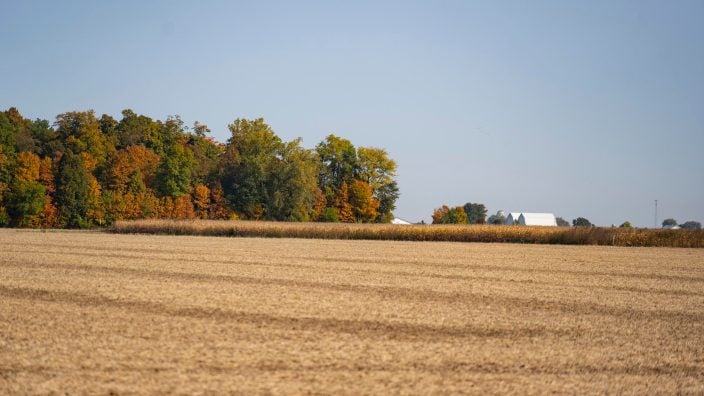Applications for Ohio Farm Bureau Health Plans now available
Members have three ways to apply: contacting a certified agent, calling 833-468-4280 or visiting ohiofarmbureauhealthplans.org.
Read MoreOhio Gov. Mike DeWine was joined by Lt. Gov. Jon Husted Wednesday to request the Ohio Bureau of Workers’ Compensation send up to $5 billion in dividends to Ohio employers to ease the continued financial impact from the COVID-19 pandemic.
“This pandemic is unprecedented and continues to financially impact Ohio employers and businesses,” said DeWine. “Issuing these dividends is important. This is about keeping businesses open and people employed.”
If approved by BWC’s board of directors, it would bring the total dividend dollars for employers this year to nearly $8 billion.
“As Ohio businesses confront the economic challenges of a COVID world, this kind of financial relief can be the difference between closing and staying open,” Husted said. “We don’t want Ohio businesses and the jobs they create to be a casualty of the pandemic.”
The $5 billion dividend would be BWC’s third dividend of more than $1 billion this year and the largest one-time dividend it has ever issued. BWC distributed $1.54 billion in April and $1.34 billion in October. At $5 billion, this dividend is approximately four times the total premiums BWC collected from its employer members in policy year 2019.
Ohio Farm Bureau Executive Vice President Adam Sharp joined the governor for the announcement of these possible dividends and shared how these funds will benefit the agricultural community.
“It is no secret that with the pandemic, global disruptions and uncertainty, and an untold number of other challenges, our agricultural community has seen some serious negative economic impacts,” Sharp said during the news conference. “The potential to return billions of dollars to our communities is vitally important as it will give businesses across the state the needed resources and cash to remain competitive and reinvest in their workforces and their safety.
According to DeWine, Ohio farms should expect to see a dividend of $9,500, on average.
Despite the pandemic, BWC remains in a strong fiscal position from healthy investment returns on employer premiums, a declining number of claims each year and prudent fiscal management.
BWC’s board of directors is tentatively scheduled to vote on the request during a special meeting Monday, Nov. 2, 2020 and checks could be delivered as early as the first week of December. Visit bwc.ohio.gov to confirm board details.
Funded by employer premiums, BWC provides workers’ compensation insurance to approximately 245,000 private employers and 4,000 public employers, such as cities, counties, and schools.


Members have three ways to apply: contacting a certified agent, calling 833-468-4280 or visiting ohiofarmbureauhealthplans.org.
Read More
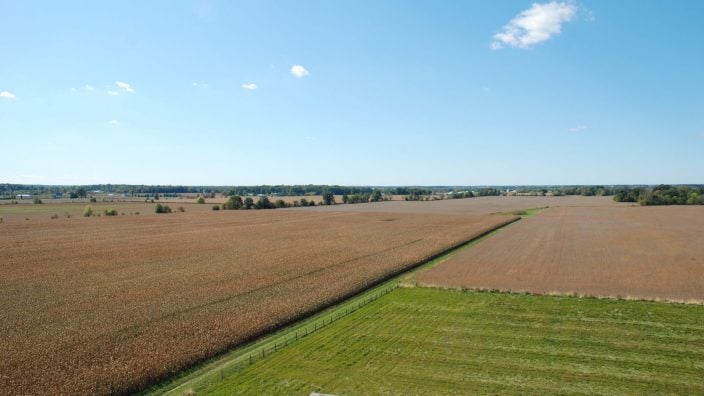
Ohio Farm Bureau recently sent a letter to Congress calling for the swift passage of the Farm, Food, and National Security Act of 2026 (HR 7567).
Read More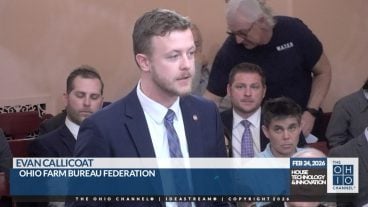
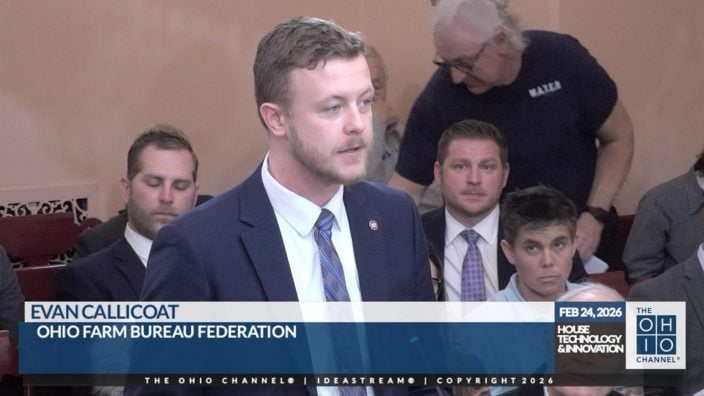
House Bill 646 would establish a Data Center Study Commission to examine the impact of rapid data center development across the state.
Read More
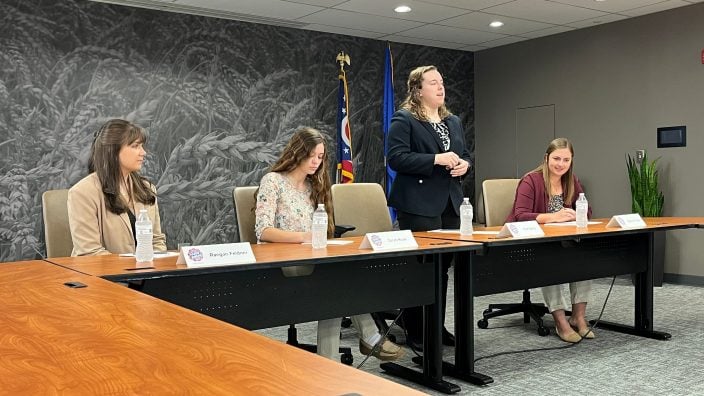
Collegiate Farm Bureau serves as a connection to current industry professionals and equips the next generation with the essential tools and resources needed to excel in their careers.
Read More
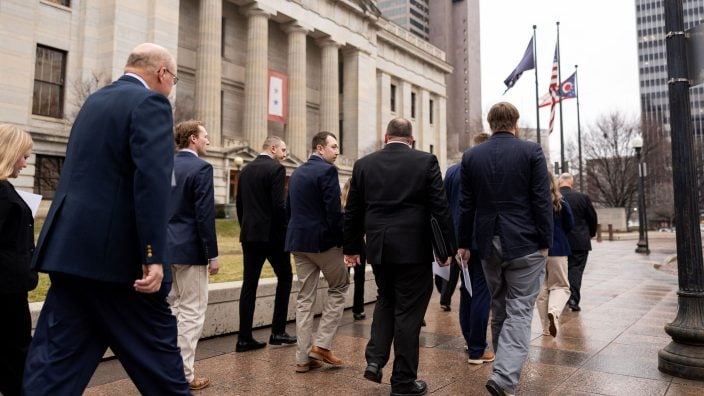
Ohio Farm Bureau members met one-on-one with state legislators and staff to discuss policy priorities impacting Ohio’s farms and rural communities.
Read More

Legacy nutrient deductions enable new farmland owners to claim deductions on the nutrients within the soil on which healthy crops depend.
Read More

Farmers, agribusinesses and community members are encouraged to nominate their local fire departments for Nationwide’s Nominate Your Fire Department Contest through April 30.
Read More

Introduced by Sen. Paula Hicks-Hudson, SB 120 would establish the Urban Farmer Youth Initiative Pilot Program.
Read More

Gases, vapors, and fumes can all create risk. How can we measure and protect ourselves from them?
Read More

The Ohio Farm Bureau’s Young Agricultural Professionals State Committee has named its 2026 leadership and the individuals who will be serving on the state committee for 2026-2028.
Read More